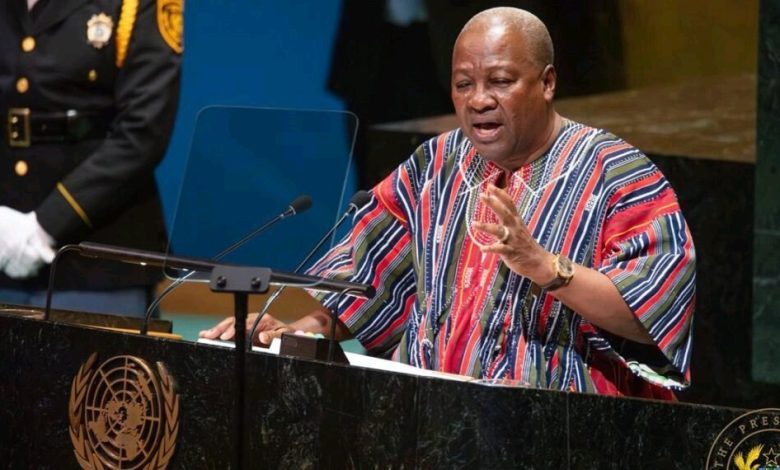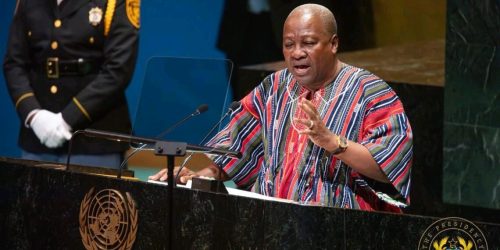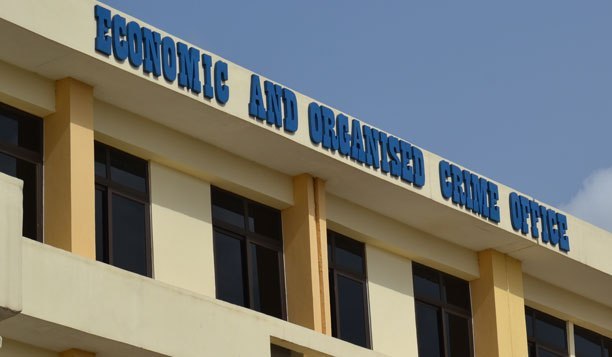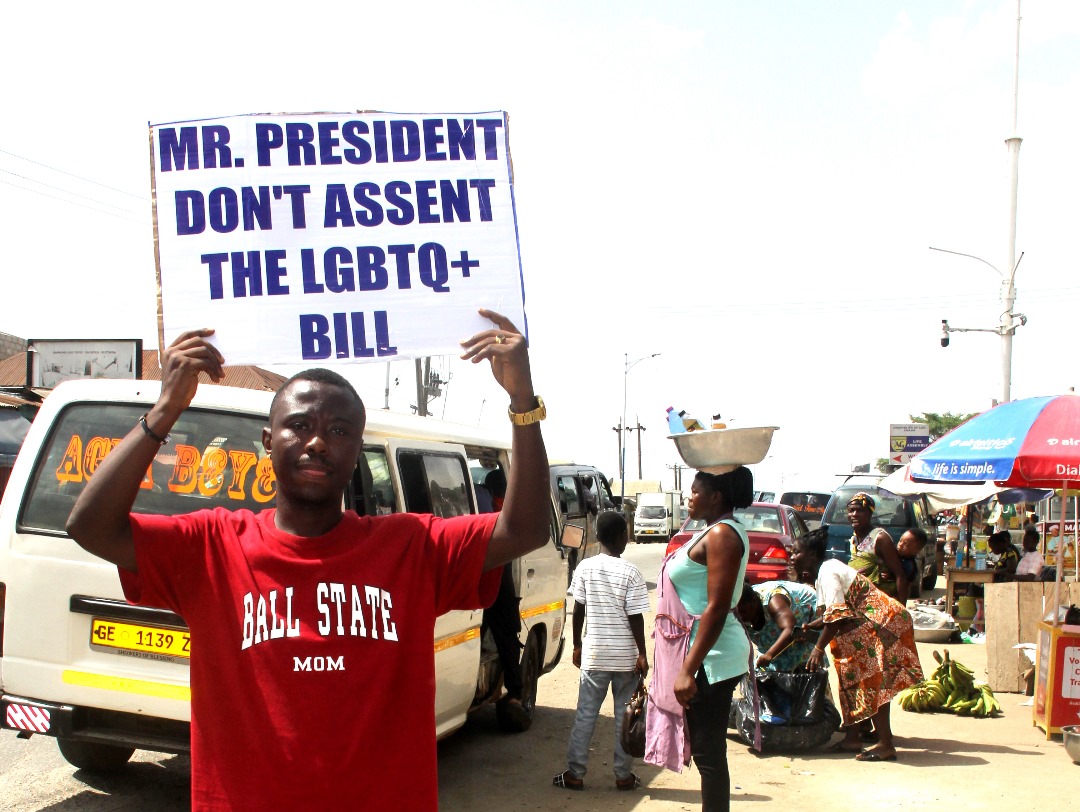Mahama’s Bold Reparations Call at UNGA80 Resonates Worldwide

President John Dramani Mahama has stirred global debate with a bold and impassioned demand for reparations during his address at the 80th United Nations General Assembly in New York, describing the transatlantic slave trade as the greatest crime against humanity and urging the international community to confront its unfinished business of justice.

In his speech, President Mahama declared that the scars of slavery, colonial exploitation, and cultural theft remain deeply embedded in the structures of the modern world. He announced Ghana’s intention to table a motion at the United Nations that would formally recognize the horrors of the slave trade and set the stage for concrete reparations. He noted with conviction that more than 12.5 million Africans were forcibly uprooted from their homelands, shipped across the Atlantic, and forced into brutal servitude that enriched Western empires. With historical clarity, he pointed out that while slave-owning nations once compensated former owners for their “loss of property,” the enslaved themselves and their descendants received nothing.
Mahama argued that the legacy of this injustice continues to haunt the present, manifesting in entrenched inequalities, unfair global structures, and the unresolved restitution of looted African resources and cultural artifacts. He stressed that Africa’s demographic and economic future makes it impossible for the world to ignore the continent’s voice, reminding delegates that when the United Nations was founded, only four African states were represented. Today, Africa counts 54 nations with a population of 1.4 billion, and by 2050 one in every four people on earth will be African. He emphasized that the future global order must reflect this reality rather than cling to outdated hierarchies of power.
In a passionate declaration that drew applause inside the Assembly hall, the President proclaimed, “The future is African. Allow me to say this once again, a little louder for the people in the back. The future is African!” He coupled this optimism with a warning about the shifting global landscape, noting that while defense budgets continue to rise, humanitarian aid has declined by 40 percent since July 2024, leaving vulnerable populations increasingly abandoned.
Mahama insisted that Africa’s sovereignty over its resources must be respected and demanded immediate redress for the plunder of artifacts and cultural property carried away during the colonial period. He framed his appeal not as a matter of charity but as a moral, historical, and economic obligation that the international community can no longer evade.
The President’s message resonated far beyond the walls of the United Nations. Outside the UN headquarters, Ghanaians living in the United States gathered with flags and banners in support of his speech, their chants underscoring the significance of his call within the diaspora community. Back in Ghana, his address drew praise from government officials, with spokespersons describing it as a defining moment that placed Ghana at the forefront of the global reparations movement. Commentators lauded the speech as a manifesto for justice, equality, and the restructuring of global governance to meet contemporary realities.

Mahama concluded by stressing that his demand was not solely on behalf of Ghana but in defense of the dignity of all nations who have suffered historical injustice. His words, blending historical reckoning with a vision for the future, left the Assembly with a clear message: Africa is no longer a passive participant in world affairs but a decisive force in shaping humanity’s destiny.





